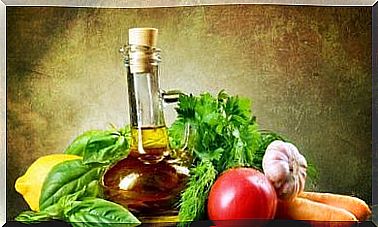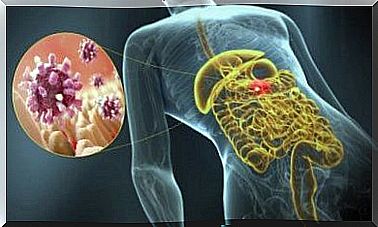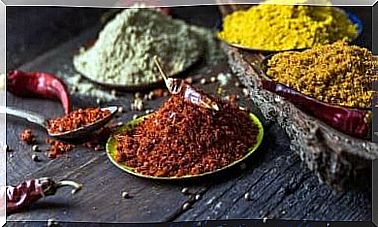Treating Allergic Rhinitis: Recommended Foods
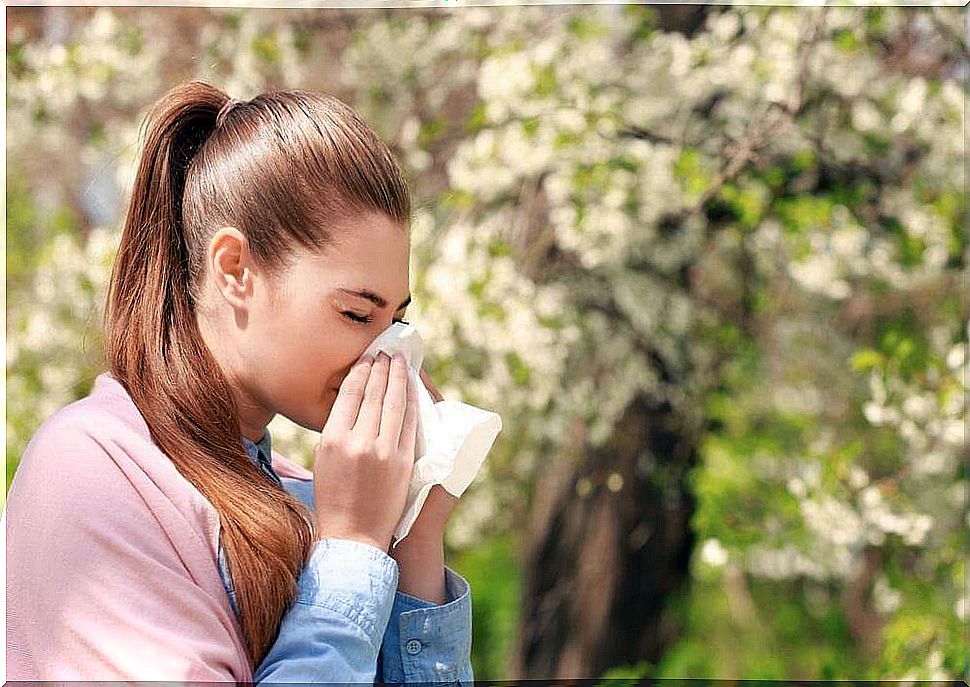
Allergic rhinitis is caused by exposure to substances found in the air, such as pollen, which appear at certain times of the year, especially in spring, summer or autumn, depending on the substance that causes the allergy . We may be allergic to one or more types of pollen or to airborne fungal spores. Today, however, let’s see how to cure allergic rhinitis thanks to some foods.
Symptoms of allergic rhinitis
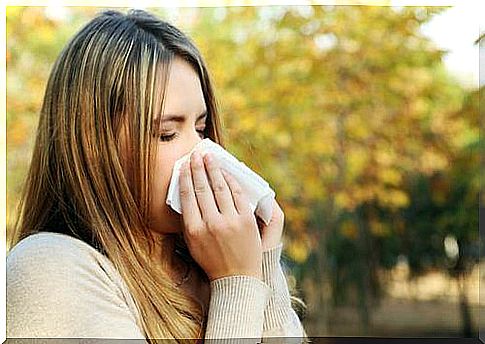
- Nasal discharge
- Burning in the eyes
- Congestion
- Presence of mucus
- Nasal inflammation
- Sneezing and redness
The immune system reacts to an element present in the surrounding environment. It is a foreign substance that can enter the body and trigger an immune response.
80% of the immune system is found in the intestine. The body interacts with the external environment, absorbing nutrients from food and keeping bacteria, pathogens and undigested food away. The immune system, once stimulated, becomes very sensitive to seasonal allergenic agents, and its response manifests itself through these symptoms.
To treat allergic rhinitis, therefore, it is important to conduct a diet for a few weeks aimed at eliminating toxic foods and thus be able to reduce the symptoms.
If after eliminating certain foods, your symptoms do not improve, you can add them back to your diet.
If, on the other hand, you notice an improvement, you are probably sensitive to these foods, so you will need to limit your consumption.

Although there is no specific diet to alleviate the symptoms of allergic rhinitis, there are nonetheless foods whose nutrients have an anti-allergic action, such as vitamin C or folic acid.
Food tips to treat allergic rhinitis
Include foods with a high concentration of vitamin C in your diet
These nutrients have anti-inflammatory properties that reduce the symptoms of allergic rhinitis, especially those of respiratory origin, which increase dramatically in spring.
- Watercress
- Kiwi
- Broccoli
- Orange and lemon
- Cauliflower
- Spinach
- Pumpkin
- Cabbage
Foods that contain folic acid
Among the foods that provide us with the greatest amount of folic acid we find:
- Lentils
- Chickpeas
- Spinach
- Chestnuts
- Asparagus
- Fava beans
- Lettuce
- Peas
Foods with flavonoids
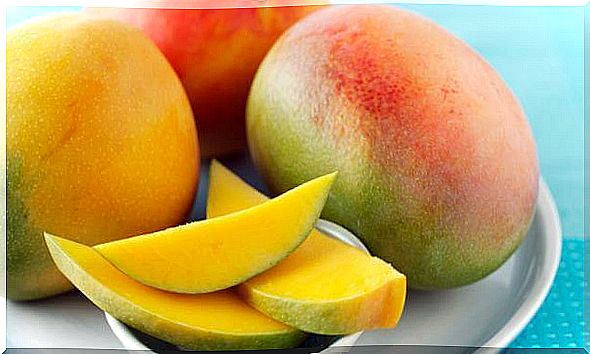
It is advisable to add to the diet foods rich in flavonoids, and in particular quercetin, which is a substance with a great antiallergic power.
- Garlic
- Onions
- Apples
- Pears
- Cherries
- Mango
- Oats
The diet must be rich in fruit and vegetables and include a regular consumption of legumes. It is necessary to insert 3 servings of vegetables and 2 of fruit every day, according to what is presented in the lists.
Features of the diet against allergic rhinitis
- Increase foods rich in omega 3 fatty acids and vitamin C.
- Eat 5 potions of fruit and vegetables a day.
- Drink green tea, which also has an antioxidant function.
- Balance the consumption of fatty acids (reduce the consumption of sunflower oil and various seeds, and choose olive oil).
- Increase your consumption of oily fish and eggs.
- Take probiotic foods, such as yogurt.
Vitamins and mineral salts that cannot be missing
Vitamin E
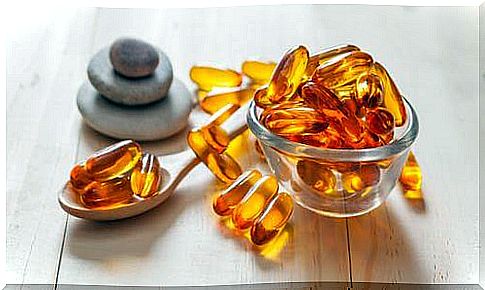
Helps reduce the inflammatory substances responsible for symptoms. To get it, we can consume:
- Whole grains
- Soy
- Vegetable oils
- Vegetables and green leafy vegetables
- Dried fruit
C vitamin
It is an antioxidant, it also helps strengthen tissues predisposed to suffer from allergies, as well as stimulating the immune system.
Beta-carotene
It is a pigment present in all plants of yellow or orange color. It is found mainly in carrots, mangoes, apricots and squash.
Once in the body, beta-carotene is transformed into vitamin A, which is essential for protecting the mucous membranes and repairing the respiratory membranes.
It is an antioxidant and protects the tissues.
Magnesium
It is a trace element whose function is to relax the brachial muscles, in order to improve lung ventilation. Excellent, therefore, to treat allergic rhinitis. We find it in higher concentrations in dried fruit.
Spicy food and spices
They can help open the nasal passages and reduce congestion. They are natural supplements that may be effective in relieving some of the allergy symptoms.
Their consumption and quantities will depend on your tolerance to spicy foods:
- Wasabi
- Dijon mustard
- Horseradish
- Hot pepper
- Turmeric
- Ginger
These foods contain a natural chemical called capsaicin, which helps to expel allergens through sweating and sneezing.
For this reason, they are very effective for relieving congestion and reducing inflammation.
Turmeric
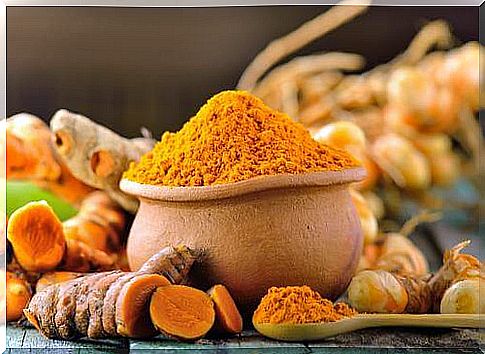
It is a yellow spice that stands out for its curcumin content, an active ingredient with great antioxidant and anti-inflammatory capabilities.
It performs a decongestant function, allowing you to treat allergic rhinitis. You can make the following preparation to get the benefits.
Ingredients
- 1 tablespoon of turmeric powder (10 g)
- 1 glass of milk (200 ml)
Preparation
- Heat the milk and add the turmeric powder.
- Mix it carefully and drink it once a day to relieve allergy symptoms.
Ginger
Ginger has many anti-inflammatory and antioxidant properties that make it a powerful anti-allergic.
It helps clear the airways and also prevent and relieve asthma symptoms.
Ingredients
- 1 cup of water
- 1 teaspoon of ground ginger (10 g) or four thin slices
Preparation
- Heat a cup of water, and when it comes to a boil, add the ginger (in the way you prefer).
- Leave it to infuse for 5 minutes, filter and drink.
- You can drink up to two cups a day to reduce congestion.
Thanks to these tips, your symptoms will improve. If you do not notice any changes over the course of the days, we recommend that you consult your doctor so that he can prescribe a drug treatment.
